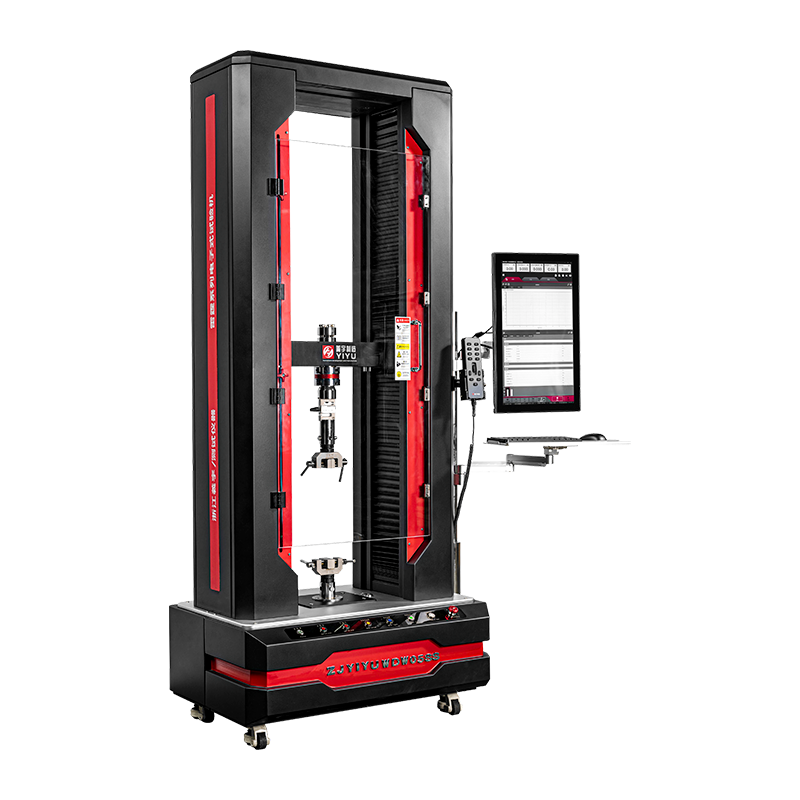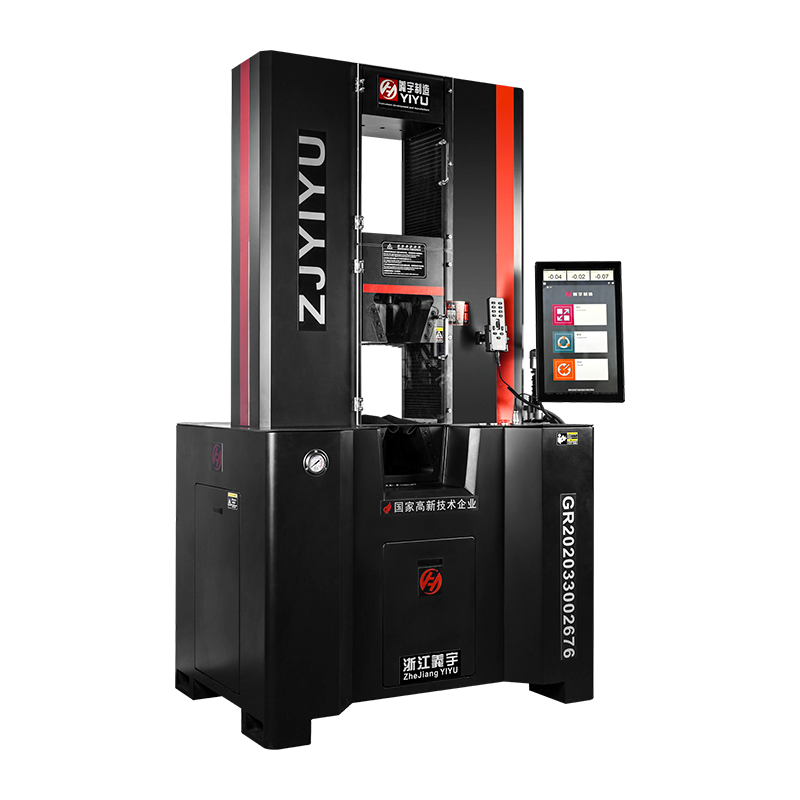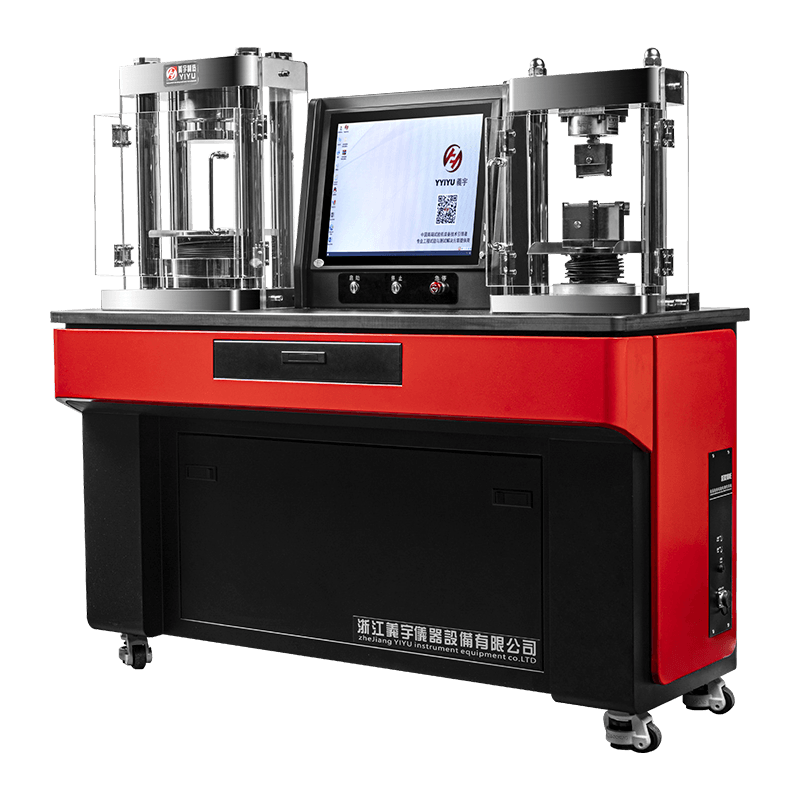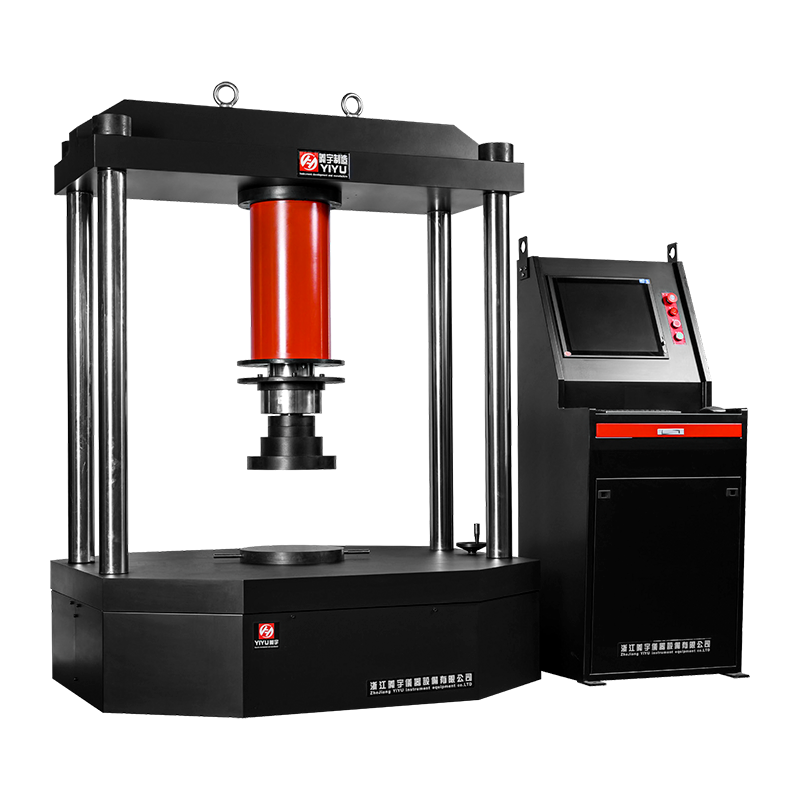In the world of manufacturing, ensuring that products meet the highest standards of quality, safety, and performance is crucial. From automotive parts to construction materials, every component produced must undergo rigorous testing to ensure it performs reliably in real-world conditions. This is where Hydraulic Universal Testing Machines (HUTMs) come into play. These machines are essential tools in the manufacturing process, used to test the mechanical properties of materials under various stresses and loads.
Versatile Testing for a Wide Range of Materials
One of the key reasons Hydraulic Universal Testing Machines are so vital in quality control is their versatility. These machines are designed to perform a variety of tests on a broad range of materials, including metals, polymers, composites, and ceramics. In a manufacturing environment, products are often made from different materials, each with unique characteristics that need to be evaluated.
Hydraulic universal testing machines can conduct:
Tensile tests: Assessing the material’s ability to withstand stretching forces.
Compression tests: Measuring how materials respond to crushing or compressive forces.
Bending tests: Determining a material's ability to resist bending without breaking.
Shear tests: Evaluating how materials behave under forces that cause them to slide past each other.
By being able to test materials across multiple stress types, Hydraulic Universal Testing Machines are capable of providing comprehensive data that helps manufacturers understand how a material will perform under different conditions, ensuring it is suitable for the intended application.
Precise and Accurate Measurements for Quality Assurance
In manufacturing, precision is key. Even the slightest deviation from specified tolerances can lead to product defects, safety hazards, and failure to meet regulatory standards. Hydraulic Universal Testing Machines excel in providing precise and accurate measurements, which is critical in maintaining quality control.
These machines are equipped with advanced sensors and load cells that ensure accurate measurement of forces, displacements, and material deformation. This level of precision is essential for manufacturers who need to ensure that their products meet the exact specifications required by their customers or regulatory bodies.
By utilizing these machines, manufacturers can:
Detect material inconsistencies that could compromise the structural integrity of products.
Ensure products perform within expected parameters, reducing the risk of faulty components making their way into the market.
Make data-driven decisions about material sourcing, manufacturing processes, and design modifications.
Ensuring Safety and Compliance with Industry Standards
Manufacturing industries, particularly those in sectors like aerospace, automotive, construction, and medical device production, are subject to strict regulatory standards. These standards are put in place to ensure that products are safe, reliable, and capable of withstanding real-world conditions.
Hydraulic Universal Testing Machines are a crucial tool for ensuring compliance with these safety and performance standards. For example:
Automotive industry: Parts like engine components, frame structures, and airbags must pass stringent tensile and fatigue tests to ensure they can withstand the stresses they’ll encounter during normal use and in the event of a crash.
Construction: Steel beams, concrete, and other materials used in building must be tested for strength and durability to prevent structural failures.
Medical devices: Implants, surgical instruments, and other devices must undergo rigorous testing to meet FDA and international medical device standards.
With the help of Hydraulic Universal Testing Machines, manufacturers can verify that their products meet the necessary quality benchmarks, reducing the risk of recalls, lawsuits, or harm to consumers.
Optimizing Production Processes for Consistency
Consistency in production is a cornerstone of quality manufacturing. A single faulty component or inconsistency in material properties can lead to batch failures or performance issues down the line. Hydraulic Universal Testing Machines help optimize manufacturing processes by identifying potential issues early in the production cycle.
Through routine testing, manufacturers can:
Monitor material quality in real-time, ensuring that incoming raw materials meet the required standards before they are processed into finished goods.
Detect variations in material properties that could result from changes in suppliers, production methods, or environmental factors.
Evaluate the performance of production equipment, ensuring that machines and tooling are functioning properly and not contributing to product defects.
By maintaining consistent material quality and manufacturing processes, these machines contribute to reduced waste, lower rework costs, and improved customer satisfaction.
Accelerating Product Development and Innovation
Quality control is not just about maintaining standards—it’s also about enabling innovation. Manufacturers are constantly seeking ways to improve product performance, reduce costs, and push the boundaries of design. Hydraulic universal testing machines play a vital role in this process by enabling faster material testing and development.
During the research and development (R&D) phase, manufacturers can use these machines to:
Test new materials or composite materials to see how they perform under various loads and stresses.
Experiment with designs and production methods to optimize material usage, performance, and cost-efficiency.
Validate prototypes by testing them under conditions similar to their intended use.
With the ability to provide immediate and actionable feedback, Hydraulic Universal Testing Machines help manufacturers streamline their development cycles and bring innovative products to market more quickly.
Reducing Operational Downtime and Costs
In manufacturing, downtime is costly. It leads to delays in production, loss of revenue, and damage to a company’s reputation. By incorporating Hydraulic Universal Testing Machines into the production process, manufacturers can reduce unplanned downtime caused by material failures or quality issues.
Through regular and thorough testing, manufacturers can:
Identify weaknesses in materials before they are used in production, reducing the likelihood of unexpected failures in finished products.
Minimize rework and scrap by ensuring that materials meet specifications before they are processed further.
Prevent costly product recalls by catching defects early in the production process.
By ensuring the quality of materials and components at every stage, manufacturers can avoid disruptions, optimize productivity, and keep costs under control.
Supporting Environmental and Sustainability Goals
As industries continue to focus on sustainability, manufacturers are increasingly interested in testing materials that are eco-friendly or recyclable. Hydraulic Universal Testing Machines are essential tools in the evaluation of such materials.
Testing bioplastics, recycled metals, and other sustainable materials is crucial for ensuring that they perform as well as traditional materials, particularly in demanding applications.
Assessing durability and longevity of sustainable materials ensures that products will last, reducing the need for frequent replacements and minimizing waste.
Hydraulic Universal Testing Machines not only help manufacturers meet sustainability goals but also ensure that these materials can stand up to the rigors of real-world use.






